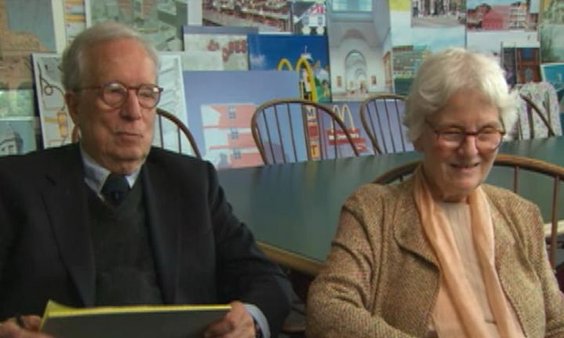NEXT STORY

Losing a job and accusations of insularity
RELATED STORIES

NEXT STORY

Losing a job and accusations of insularity
RELATED STORIES


|
Views | Duration | |
|---|---|---|---|
| 101. Chinese scholars gardens and lilong housing | 42 | 05:45 | |
| 102. The future | 41 | 04:23 | |
| 103. Designing medical centers (Part 1) | 18 | 04:05 | |
| 104. Designing medical centers (Part 2) | 18 | 04:57 | |
| 105. Robert Scott Brown and how we met | 55 | 03:30 | |
| 106. The development of the theory of planning class | 26 | 07:44 | |
| 107. Our courtship | 44 | 02:19 | |
| 108. Words: oppression and persecution | 26 | 01:45 | |
| 109. Losing a job and accusations of insularity | 32 | 02:05 | |
| 110. How men and women are treated differently | 53 | 01:42 |


[DSB] The word persecution comes to mind and that has many overtones. It’s biblical, it deals with what happens to Jews, it thinks… it relates to the Holocaust. I think the word oppression came in probably in the 1960s more. And, but, it still has those…
No, your personal relationship with this word. I’m not talking about an academic.
[DSB] I know, but, I’m talking about my… I think I began thinking in terms of the word oppression in the 1960s. And… but I was hearing it around me and it seemed to me a word that wasn’t… it dealt with the Holocaust and with persecution of the Jews and with the Bible, but it seemed to be… to bring it up to, a kind of, a more modern… you could use it for a milder form as well as for a stronger form. But you could make the link between the two. So, I think, I probably got it around the planning school or around what was being written and you know, places like The New Republic, which was much more of the Left at that time. Probably read it a lot in places like that. For what was happening to blacks in America then, and it seemed to be a word that had a wider range. I… I try very hard to think of myself as not oppressing other people also it’s, kind of, from that point of view. You want to control the tendency in yourself, to maybe do the same thing. I wouldn’t think of myself as persecuting but I think… would think of myself, as possibly being able to oppress other people.
Internationally renowned architects Robert Venturi (1925-2018) and Denise Scott Brown (b.1931) have helped transform contemporary design through their innovative architecture and planning. Winners of numerous prestigious awards, their designs have championed multiculturalism, social activism, symbolism, pop culture, history and evolving technologies.
Title: Words: oppression and persecution
Listeners: Thomas Hughes
Thomas Hughes is Mellon Professor Emeritus of the History of Science at the University of Pennsylvania and Distinguished Visiting Professor at the Massachusetts Institute of Technology. His most recent books include Human Built World, Rescuing Prometheus and American Genesis. He is a member of the American Philosophical Society, US National Academy of Engineering, Royal Swedish Academy of Engineering Sciences and the American Academy of Arts and Sciences.
Duration: 1 minute, 45 seconds
Date story recorded: 22nd to 23rd September 2006
Date story went live: 27 May 2010